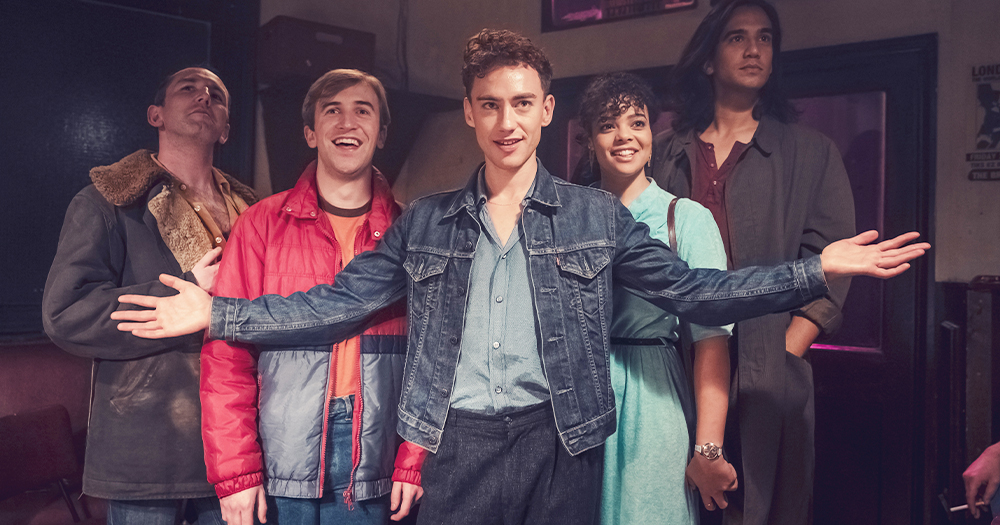Russell T Davies has revealed that he originally imagined It’s A Sin to be eight episodes long, with the final three episodes casting a look decades into the future of some of his beloved characters’ lives.
Talking to well-known AIDS activist, Ruth Coker Burks, on Damien Barr’s Literary Salon, Davies explained that although he had imagined the five-part series being an eight-part one, he “was offered four episodes, and that’s fine. Everything that [he] would’ve done kind of compacted inwards.”
He went on to explain what his final three episodes would have consisted of, saying that the show is “quite a dense piece of work, which [I] think has actually acted in its favour.”
Although Davies pushed for a fifth episode, he explained that the show was meant to have a final episode that would follow Jill, now 55, in her search for the Tozer family’s secrets.
Jill who has been described as “the golden, beating heart of the show” is based on a real-life friend of Davies who made an appearance in the show herself as Jill’s mother.
The final episode would have also brought back an older Roscoe who “would’ve been one of those men who contract HIV in middle age,” Davies revealed. “You know, 50 years old and he’s got the virus having escaped it all those years.”

Considering the importance of It’s A Sin, in terms of the show’s portrayal of the AIDS crisis, Davies’ vision of his beloved characters’ lives decades later—where they are still grappling with the consequences of the AIDS epidemic; whether in terms of illness, shame, or grief—speaks volumes to his own description of:
“always [being] wary about talking about it [the AIDS epidemic] in the past tense. There’s still an awful lot of people who don’t get tested and still an awful lot of prejudice.”
It’s A Sin bolstered conversations around HIV and AIDS stigma, and queerphobia more generally, with Michael Cashman (one of the founders of the UK LGBTQ+ charity Stonewall) describing in a piece for the Independent that:
“I realised that despite the sacrifices over the years, the pain, the decimation of people’s humanity, the denial of their integrity and their identity, the stigma that they had faced, the same things are happening again now. This time the target is not LGB people, but trans women, trans men, non-binary people and trans teenagers.”
Davies’ vision of the aftermath of such a crisis for Jill and Roscoe perfectly encapsulates this feeling of hurt and anger in watching It’s A Sin. Not only in remembering the suffering and loss at the height of the AIDS epidemic but also in understanding the continued presence of homophobia, transphobia, and HIV stigma present within our society today.
Davies went on to explain that he has no desire to revisit It’s A Sin now but admits that he “still mourns” the missing episodes. Considering the success of the show, becoming All4’s biggest ever drama launch, undoubtedly an extended version of the series would garner plenty of attention.
© 2021 GCN (Gay Community News). All rights reserved.
Support GCN
GCN is a free, vital resource for Ireland’s LGBTQ+ community since 1988.
GCN is a trading name of National LGBT Federation CLG, a registered charity - Charity Number: 20034580.
GCN relies on the generous support of the community and allies to sustain the crucial work that we do. Producing GCN is costly, and, in an industry which has been hugely impacted by rising costs, we need your support to help sustain and grow this vital resource.
Supporting GCN for as little as €1.99 per month will help us continue our work as Ireland’s free, independent LGBTQ+ media.
